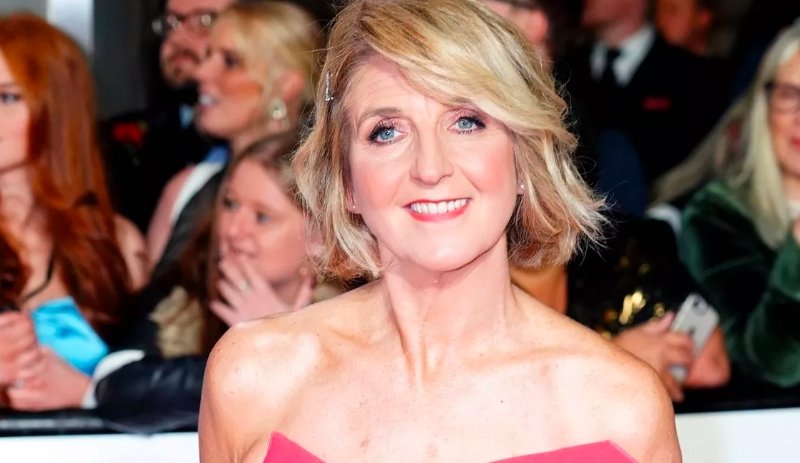Award-winning broadcaster Kaye Adams has voiced deep distress after her sudden removal from BBC Radio Scotland’s morning show due to an unspecified conduct complaint. The veteran presenter, known for her long stint on ITV’s Loose Women, claims the BBC has left her in the dark, fueling weeks of damaging speculation about her professional reputation.
Suspension Shakes Up BBC Radio Scotland Lineup
Kaye Adams hosted Mornings with Kaye Adams on BBC Radio Scotland for over a decade, drawing listeners with her engaging phone-ins and lively discussions. The show aired weekdays from 9am to midday, but Adams stepped away after her final broadcast on October 6, 2025. Colleagues Stephen Jardine and Connie McLaughlin filled in, keeping the program running smoothly amid the behind-the-scenes turmoil.
This move came as part of an internal investigation into complaints raised through the BBC’s Call It Out initiative, a system designed to tackle workplace issues following high-profile scandals at the broadcaster. Sources close to the matter indicate the allegations stem from interactions with junior staff, though the exact details remain under wraps. Adams, who joined BBC Radio Scotland in 2010, has built a solid career there without prior hiccups, making this development all the more shocking to fans and industry watchers.
The timing adds extra pressure, as the new head of audio and events, Victoria Easton Riley, had just started in her role. Reports suggest a debrief meeting between Adams and Riley on October 8 turned tense, with Adams leaving abruptly. Such incidents highlight the growing scrutiny on workplace dynamics in media, especially at public broadcasters like the BBC.

Adams Breaks Silence on the Turmoil
In a heartfelt statement released on October 27, 2025, Adams opened up about the emotional toll of the past three weeks. She described them as some of the toughest in her professional life, emphasizing how media coverage has tarnished her spotless name. Adams pointed out that despite the suspension, the BBC has shared no specifics on the allegations, leaving her unable to respond or defend herself effectively.
Her words carry weight given her extensive experience in broadcasting. Adams has navigated high-stakes TV and radio for years, earning praise for her straightforward style. This situation echoes broader concerns in the industry about transparency during investigations, where presenters often face public judgment before full facts emerge. Supporters rally around her, noting her dedication to Scottish audiences and her role in amplifying diverse voices on air.
Adams also addressed rumors of storming out of the meeting, firmly denying them and calling for a fair process. Her frustration underscores a key issue: how quickly unverified claims can spread in the digital age, impacting careers built over decades.
Unpacking the Bullying Allegations
Whispers of bullying have swirled since the story broke, with reports pointing to claims of shouting and screaming at team members. These surfaced via anonymous channels under the Call It Out program, launched earlier in 2025 to encourage reporting of misconduct. The initiative gained traction after controversies involving other BBC figures, pushing staff to speak up on toxic behaviors.
While the BBC stays tight-lipped, insiders suggest the complaints involve multiple junior employees feeling mistreated during production. Adams earns around £155,000 a year for the role, a figure that reflects her seniority but also invites questions about power imbalances in newsrooms. Critics argue such high-profile suspensions can deter open dialogue, while proponents see them as steps toward healthier workplaces.
To provide context, here’s a quick look at key aspects of the allegations:
- Nature of Claims: Focus on verbal outbursts during debriefs and team interactions.
- Reporting Mechanism: Used BBC’s Call It Out tool, aimed at anonymous feedback.
- Scope: Involves junior staff, potentially multiple complainants.
- Precedent: Similar to past BBC cases, emphasizing zero tolerance for aggression.
This isn’t Adams’ first brush with controversy. Back in 2011, she faced a brief suspension for a tweet criticizing then-London Mayor Boris Johnson during the riots. She issued an apology and returned stronger, showing resilience in her career.
BBC’s Handling and Ongoing Probe
The BBC Scotland spokesperson reiterated their commitment to robust internal processes, refusing to comment on individual cases. They confirmed Adams has not left the corporation permanently, hinting at a possible return once the review wraps up. The investigation, now in its third week, involves HR interviews with staff, and experts predict it could stretch another two weeks at minimum.
This approach aligns with the broadcaster’s guidelines post-scandals, prioritizing confidentiality to protect all parties. However, Adams’ camp argues the lack of communication prolongs her distress and invites unfair media frenzy. Broader industry trends show a rise in such probes, with outlets like the BBC facing pressure to modernize their cultures amid #MeToo echoes.
For a clearer picture, consider this timeline of events:
| Date | Event Description |
|---|---|
| October 6, 2025 | Adams’ last broadcast on Mornings show. |
| October 8, 2025 | Tense meeting with new audio head Victoria Easton Riley. |
| Mid-October 2025 | Complaints formally investigated; Adams removed from air. |
| October 23, 2025 | Representative states no complaints presented to Adams. |
| October 27, 2025 | Adams issues public statement on distress and speculation. |
Such structured probes aim for fairness, but they often leave the public guessing, fueling online debates.
Career Implications and Public Backlash
Adams’ dual role adds layers to the story. ITV bosses assured her spot on Loose Women remains secure, where she has anchored since 1999, sharing candid views on everything from family life to current affairs. Her Scottish roots, growing up in Grangemouth, have endeared her to audiences north of the border, and this saga tests that loyalty.
Social media buzz has been intense, with fans defending her as a trailblazer and detractors questioning her leadership style. Some online chatter ties the complaints to perceived political biases, like pro-Labour leanings, though no evidence supports this. Recent events, such as other BBC presenters facing scrutiny, remind us of the volatile media landscape where one complaint can derail a legacy.
Adams, a mother of two with partner Ian Campbell, has spoken before about balancing work and home. This episode might prompt her to reflect on those dynamics, especially as her daughters Charley and Bonnie navigate their own paths. Ultimately, the outcome could shape not just her future at the BBC but also how broadcasters handle star talent under fire.
As this story unfolds, it raises vital questions about accountability and support in journalism. Share your thoughts in the comments below and spread the word if you want more updates on Kaye Adams’ situation.


















